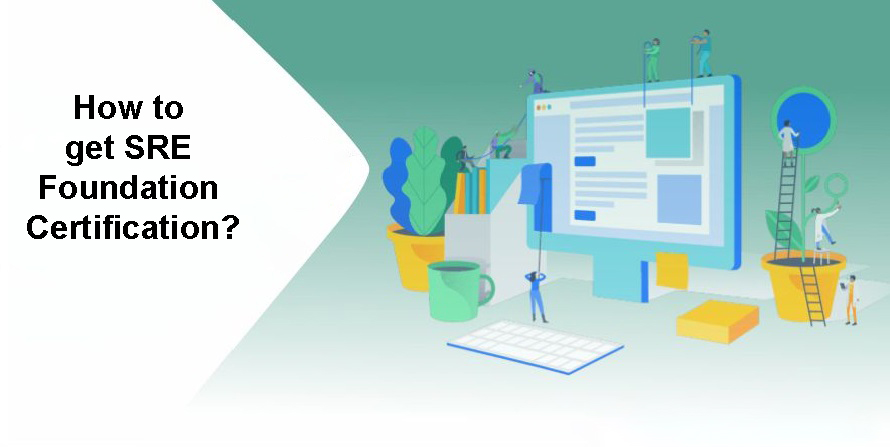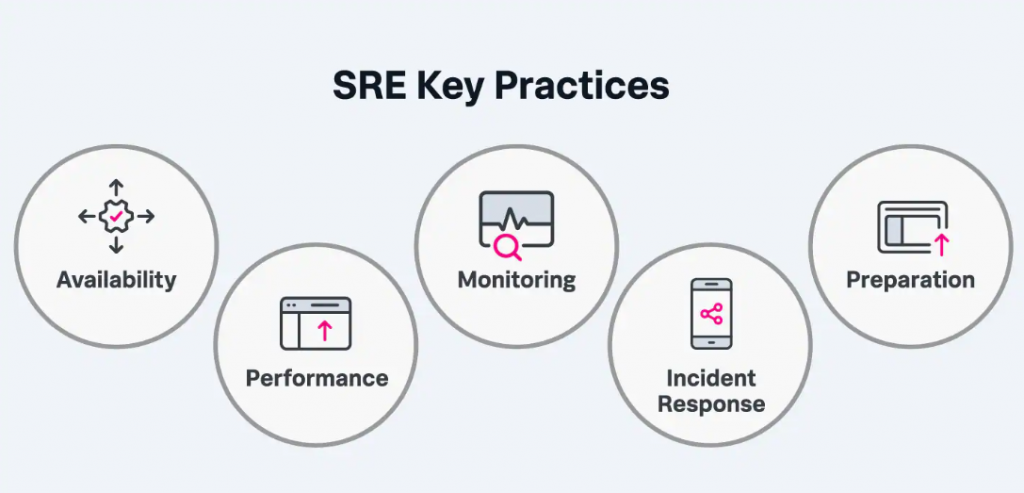Upgrade & Secure Your Future with DevOps, SRE, DevSecOps, MLOps!
We spend hours on Instagram and YouTube and waste money on coffee and fast food, but won’t spend 30 minutes a day learning skills to boost our careers.
Master in DevOps, SRE, DevSecOps & MLOps!
Learn from Guru Rajesh Kumar and double your salary in just one year.

So, you want to become a Site Reliability Engineer (SRE) and get your SRE Foundation Certification? Well, you’ve come to the right place! In this blog article, we will explore the steps you need to take to achieve this prestigious certification. But before we dive into the details, let’s first understand what SRE is all about.
What is SRE Foundation Certification
The SRE Foundation Certification is a credential that demonstrates a person’s knowledge and understanding of the core concepts and practices of Site Reliability Engineering (SRE). SRE is a discipline that combines software engineering and IT operations to create scalable and highly reliable software systems. The certification is designed to validate a candidate’s familiarity with the principles, practices, and methodologies of SRE as well as their ability to apply these concepts to real-world scenarios. Achieving the certification indicates that an individual has a solid foundation in SRE and is capable of contributing to the implementation and maintenance of reliable and scalable systems.
Here are some of the benefits of getting SRE Foundation Certification:
- Demonstrate your skills and knowledge to potential employers
- Advance your career in the field of SRE
- Gain access to exclusive resources and events
- Stay up-to-date on the latest SRE practices
- Build your network with other SRE professionals
Why SRE Certification is important?
Site Reliability Engineering (SRE) is a rapidly growing field, and there is a high demand for skilled SRE professionals. SRE Certification can help you demonstrate your skills and knowledge to potential employers, advance your career, and stay up-to-date on the latest SRE practices.
Here are some of the reasons why SRE Certification is important:
- It demonstrates your skills and knowledge to potential employers. When you are looking for a job in SRE, having a certification can give you a competitive edge over other candidates. It shows that you have a solid understanding of the principles and practices of SRE and that you are committed to continuous learning.
- It can help you advance your career in the field of SRE. As you gain experience in SRE, you may want to pursue more advanced certifications, such as the SRE Professional Certification. These certifications can help you to advance your career and take on more senior roles.
- It gives you access to exclusive resources and events. Many organizations that offer SRE certifications also offer exclusive resources and events to their certified members. This can include access to online courses, webinars, and conferences.
- It helps you stay up-to-date on the latest SRE practices. The field of SRE is constantly evolving, so it is important to stay up-to-date on the latest practices. SRE certifications can help you to do this by providing you with the knowledge and skills you need to be successful in the field.
- It helps you build your network with other SRE professionals. Attending SRE certification events is a great way to meet other SRE professionals and learn from their experiences. This can be invaluable in your career, as you will be able to network with people who can help you advance your career.
What are the tools needed to learn for a strong SRE Foundation?

Here are some of the tools that you need to learn for a strong SRE Foundation:
- Monitoring and alerting tools: These tools are used to collect and analyze data about your systems and applications so that you can identify and fix problems before they impact your users. Some popular monitoring and alerting tools include:
- Prometheus
- Grafana
- ELK Stack
- Incident management tools: These tools are used to manage incidents when they do occur. They help you to track the incident, communicate with your team, and resolve the issue as quickly as possible. Some popular incident management tools include:
- PagerDuty
- VictorOps
- Opsgenie
- Infrastructure automation tools: These tools are used to automate the provisioning, configuration, and deployment of your systems and applications. This can help you to save time and reduce errors. Some popular infrastructure automation tools include:
- Terraform
- Ansible
- Chef
- Continuous integration and continuous delivery (CI/CD) tools: These tools are used to automate the build, test, and deployment of your applications. This can help you to release new features and fixes more quickly and reliably. Some popular CI/CD tools include:
- Jenkins
- Spinnaker
- CircleCI
- Containerization and orchestration tools: These tools are used to package your applications into containers, which can then be deployed to any environment. This can help you to improve the portability and scalability of your applications. Some popular containerization and orchestration tools include:
- Docker
- Kubernetes
- Nomad
How DevOpsSchool’s is best for SRE Foundation Certification?
DevOpsSchool is a great resource for learning about SRE and preparing for the SRE Foundation Certification exam. If you are serious about becoming an SRE, I highly recommend checking out DevOpsSchool.
Here are some additional benefits of using DevOpsSchool for SRE Foundation Certification:
- Flexible learning options: DevOpsSchool offers a variety of learning options, including live online courses, on-demand courses, and self-paced courses. This allows you to choose the option that best suits your learning style and schedule.
- Accredited training: DevOpsSchool’s SRE Foundation Certification training is accredited by the DevOps Institute. This means that you can be sure that you are receiving high-quality training that is aligned with the latest industry standards.
- Money-back guarantee: DevOpsSchool offers a money-back guarantee on its SRE Foundation Certification training. This means that you can try the training out risk-free. If you are not satisfied with the training, you can get a full refund.